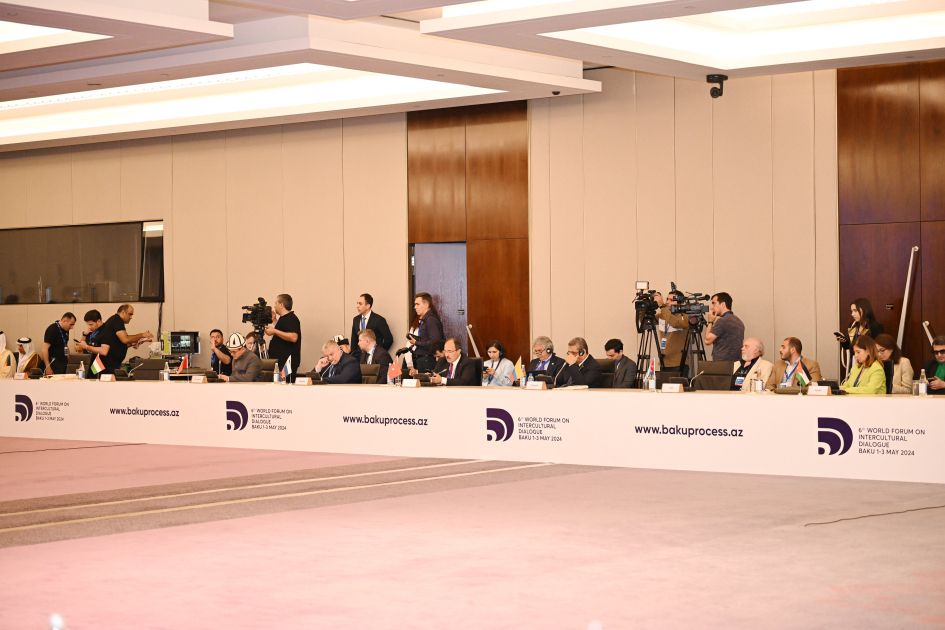Themed "Dialogue for Peace and Global Security: Cooperation and Interconnectivity," the 6th World Forum on Intercultural Dialogue highlights the significance of addressing major global issues through dialogue and collaboration, Azernews reports.
The forum aims to explore the critical intersections between dialogue facilitation, cooperative frameworks, leadership efficacy, and the complex dynamics of interconnectedness, all in the service of advancing global peace and security imperatives.
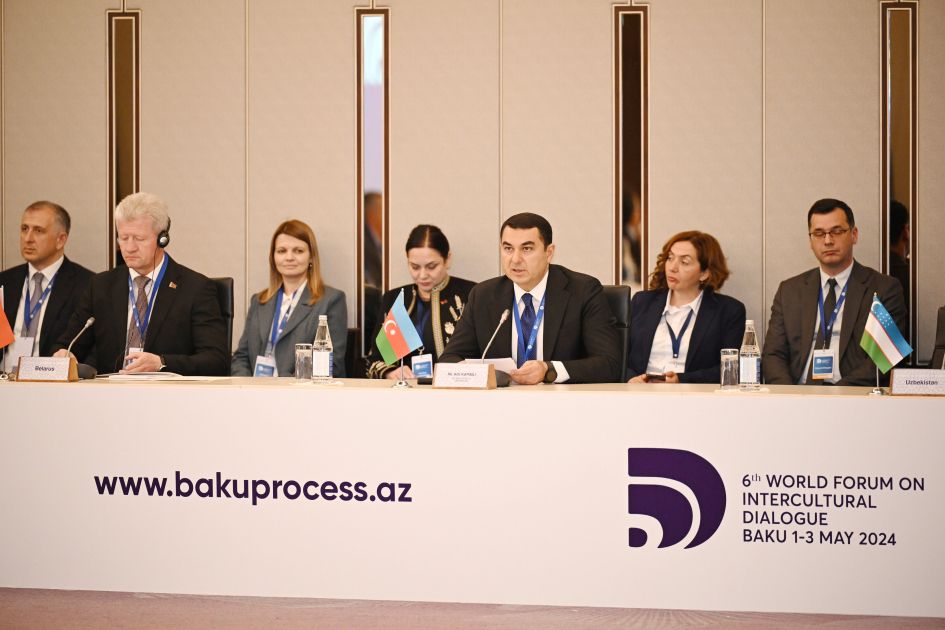
During the forum, the 5th Meeting of Culture Ministers was organised, bringing together culture ministers from various countries to discuss matters of global importance.
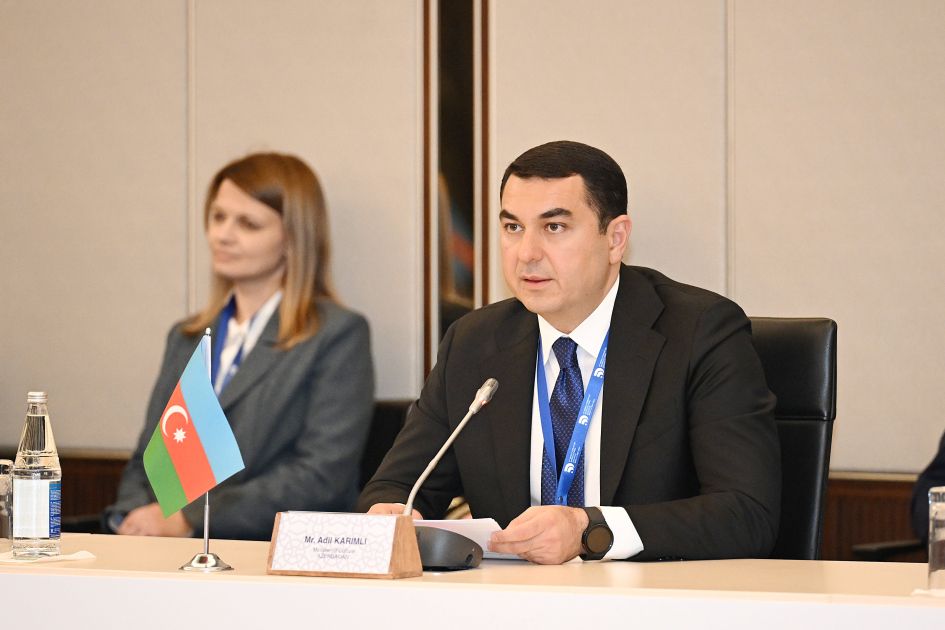
Azerbaijan Culture Minister Adil Karimli chaired the meeting on the theme "Harmony in Diversity: Fostering Intercultural Dialogue for a Global Cultural Renaissance".
In his speech, Adil Karimli stressed that Azerbaijan is known as the country where representatives of different religious confessions and nations have always lived in an atmosphere of peace.
The minister outlined that at a time when culture and religion divided humanity into communities at war with each other, Azerbaijan became a beacon of hope in the world.
"At a time of tension and confrontation in the world, Azerbaijan remains a country in which representatives of all religions live in conditions of mutual respect and understanding. This is a valuable legacy of our history,” the minister said.
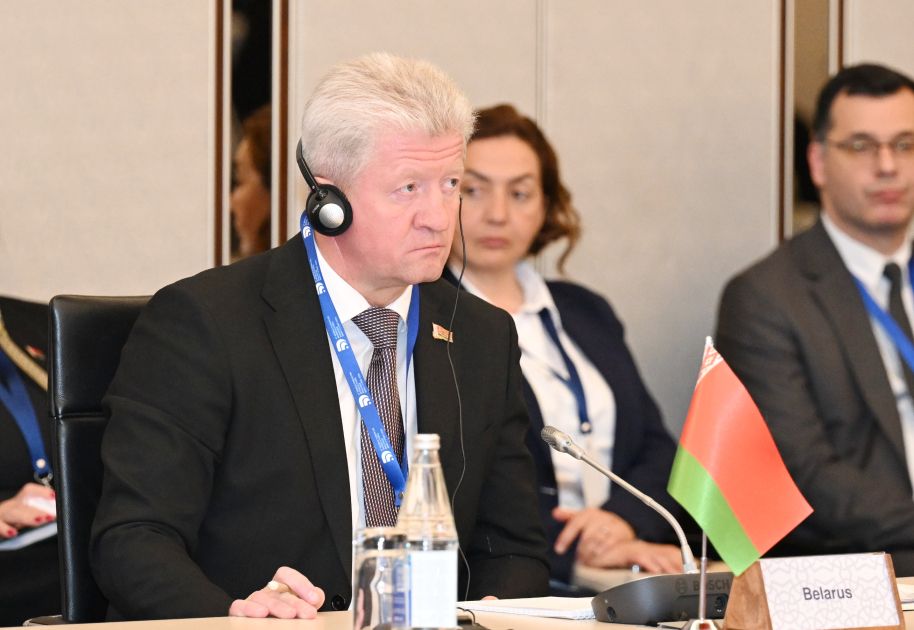
Belarusian Culture Minister Anatoly Markevich underscored the importance of the 6th World Forum on Intercultural Dialogue.
In his speech, Anatoly Markevich noted that in Belarus, different peoples coexist under conditions of mutual understanding.
"We pay special attention to the preservation of cultural monuments and strive to pass them on to future generations. Representatives of various religions living in our country are citizens of Belarus," Anatoly Markevich said.
He stated that there is currently only one value on the planet, and that is peace.
"Every person is responsible for this. International organisations are of great importance for establishing cooperation between peoples. Along the way we make new friends. We have created a cultural bridge between Belarus and Azerbaijan," he added.
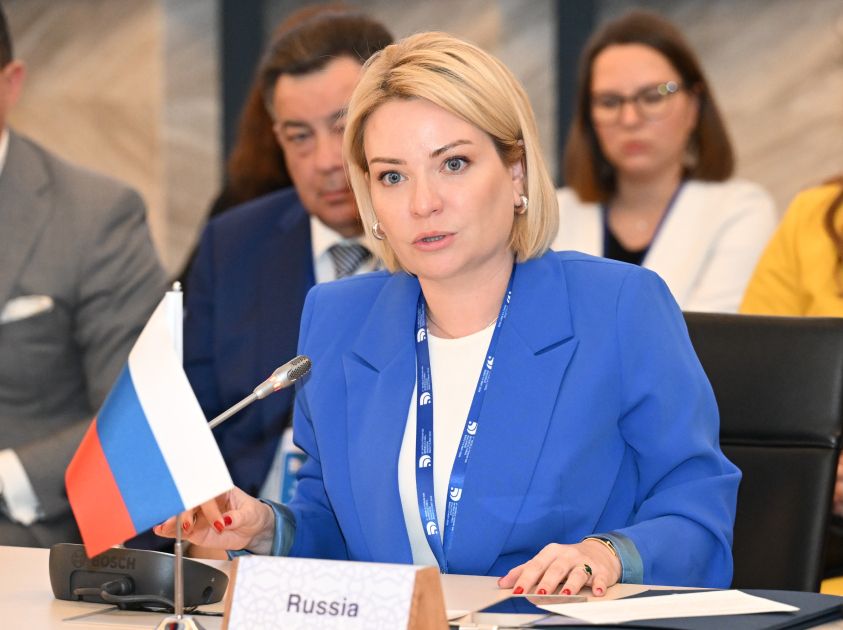
Russian Culture Minister Olga Lyubimova expressed satisfaction with participation in this forum dedicated to intercultural dialogue.
She informed about cultural events held in her country and noted that the main goal is to preserve traditions and equality between people.
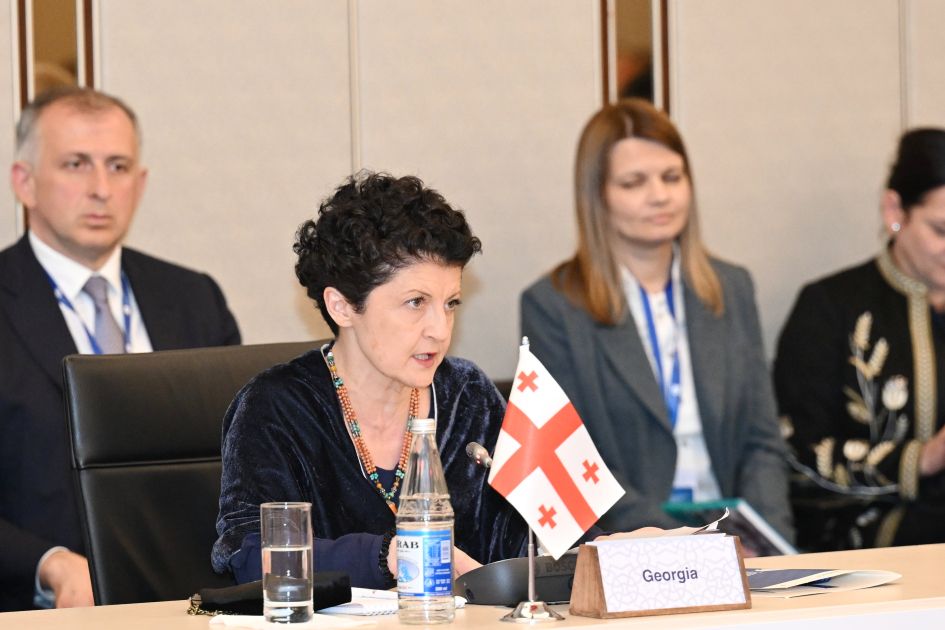
The Georgian Minister of Culture, Sports, and Youth Policy, Thea Tsulukiani, said that her country is a state distinguished by its high Christian culture.
Thea Tsulukiani added that relevant documents in the field of cultural diversity have been prepared and adopted in Georgia, bringing to attention that this is beneficial for creating a climate of multiculturalism.
"We highly value our friendship and partnership with Azerbaijan and celebrate this at every international event. We also consider it an honour to cooperate with Azerbaijan," she said.
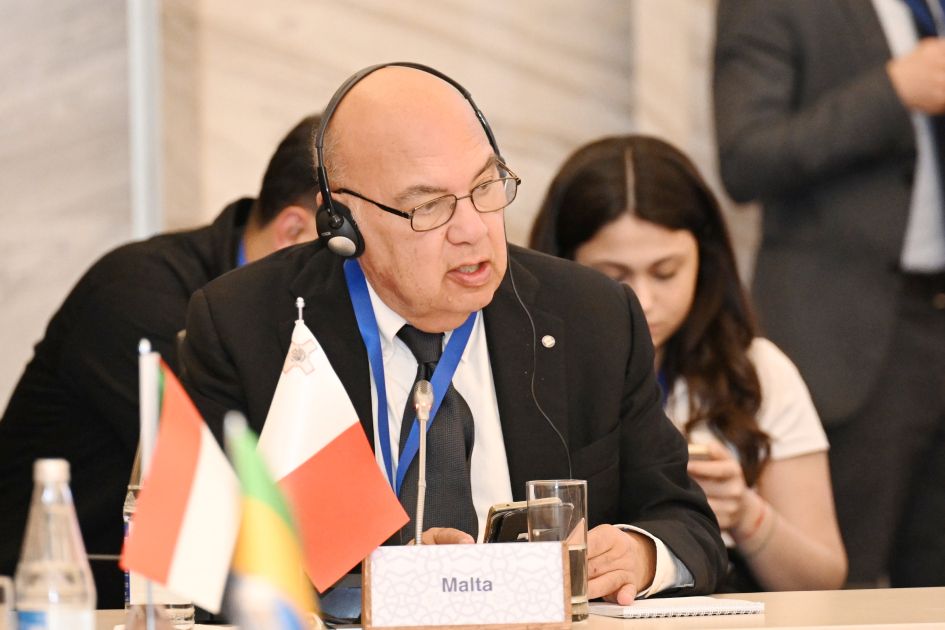
Chairman of the Malta National Commission of UNESCO, Raymond Bonde, hailed Azerbaijan's rich heritage.
"Azerbaijan has a wonderful heritage, its greatness is amazing. We must live in peace, establish cooperation, and get to know each other. Every effort must be made to preserve the world's cultural heritage. I hope that enough attention will be paid to sights that are important in the history of mankind. I express my deep gratitude to Azerbaijan for holding such important meetings," Raymond Bonde said.
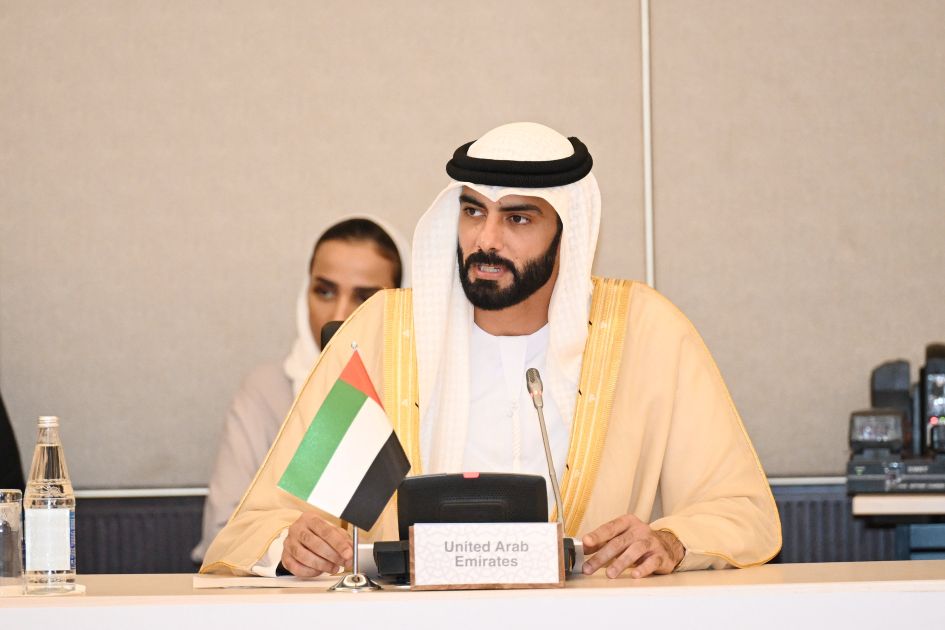
UAE Culture Minister Sheikh Salem bin Khalid Al Qassimi said that this forum coincided with Azerbaijan's preparations for COP29. He expressed hope that COP29 will contribute to solving global climate problems.
"We must strive to promote world peace, work together to achieve our goals, and move towards a global cultural renaissance," he said.
CIS Deputy Secretary General Denis Trefilov expressed his hope for the strengthening and development of intercultural dialogue.He stressed the significance of cooperation between the CIS states.
"We also regularly update the legislative framework to expand cultural ties between the CIS countries," he said.
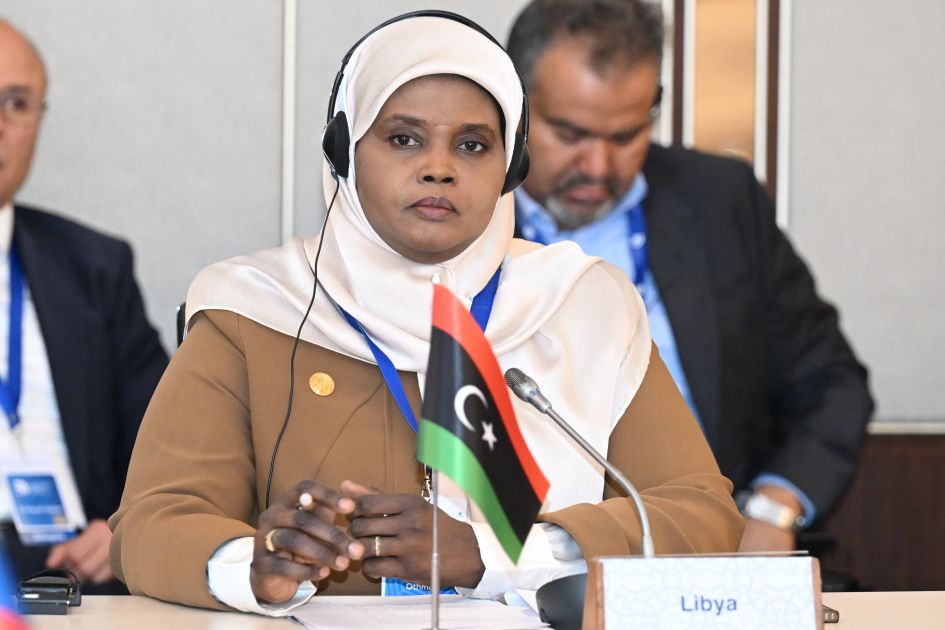
Libyan Minister of Culture and Education Mabrouka Othman said that the world is currently in a state of struggle, which affects stability and peace on the planet.
"Humanity is now faced with numerous risks. It is necessary to find ways to solve the challenges. We must encourage intercultural dialogue and understanding," she said.

Iranian Minister of Culture and Islamic Guidance Mohammad Mehdi Esmaili noted that international organizations should deal with the issue of maintaining peace and tranquility.
"There is a great need for numerous intercultural projects in this area to achieve peace, unity and equality. And in multinational, multilingual countries, there is a need for such platforms at the regional level," he said.
Representatives of other countries who spoke at the event underlined that the 6th World Forum on Intercultural Dialogue would contribute to ensuring peace on the planet.
It was noted that all countries should live in conditions of peace and tranquility. It is necessary to learn lessons from the past and move confidently into the future. The sharing of values on such platforms leads to prosperity and happiness.
